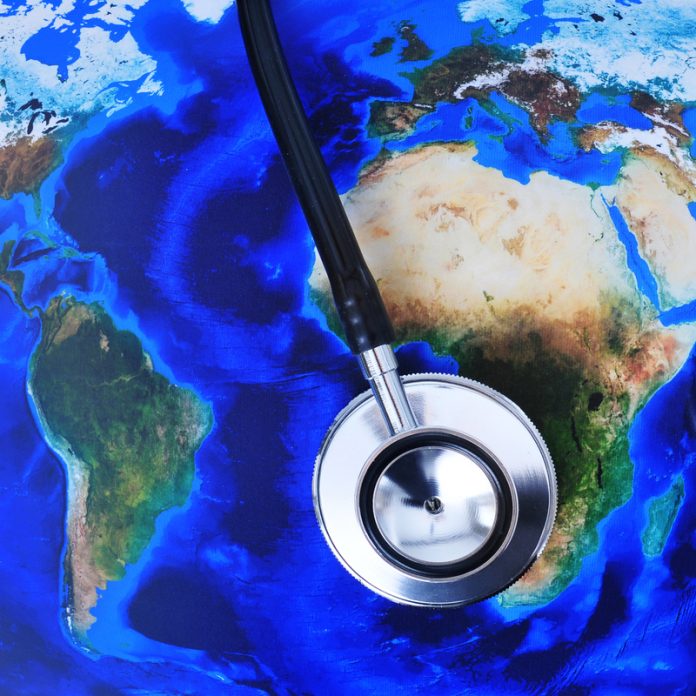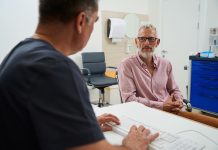Senior Research Advisor from the American Association of Geographers, Yonette Thomas discusses the important role that geography can play in addressing global health needs, both in research and in practice
The American Association of Geographers (AAG) is a non-profit scientific and educational society, founded in 1904. For over 100 years the AAG has contributed to the advancement of geography and added to this, its members come from nearly 100 countries and share interests in the theory, methods and practice of geography.
Introducing the fascinating subject of health geography, the AAG’s senior research advisor, Yonette Thomas points out that human geography involves the interaction between human beings and their environments in place, time and spatially defined areas. Having said that, the subject of health adds to this type of geography because where people reside and live impacts their health and wellbeing. Thomas then goes on to expand this fascinating point in her own words, such as what diseases impact upon people, how their physical environment impacts their health.
“Geography and health, have a long conceptual and methodological history. Medical geographers focus on the interaction of health and geography and bring these two areas together. This focus on the geography of health and disease is multi-disciplinary because, for example, medial sociologists and social epidemiologists study people in context from an ecological perspective and engage health geographers in such studies. We know and have evidence for understanding how where people live and reside directly impacts their health, what kind of food they eat and how active they are. This is a multi-disciplinary effort requiring shared conceptualisations and methodologies.”
“More specifically, examining broader perspectives in terms of environments and physical location, or country-by-country right down to municipalities and neighbourhoods, is where the action really happens. If we look at the City of London during the time of John Snow, people were fetching water from the Broad Street pump when the cholera epidemic was raging. John Snow, the father of modern epidemiology, is famous for removing the Broad Street pump and halting the cholera epidemic.
“When you look at lower and middle-income countries (LMICs) in the world today – such as in Bangladesh and other countries where people are moving into urban areas or forced into migration because of wars or famines – the knowledge and tools of health geography help us understand and implement strategies for dealing with the consequences of these events. So geographers play a significant role in using tools such as geographic information systems (GIS) to map out water resources, sanitation control points, food sources, where crops are better grown in relation to where population groups are and where people are at risk.”
Having looked at these intersecting pieces, Yonette then underlines that health geography does not only inform issues affecting populations in low and middle-income countries, but in developed countries such as the United States as well. In the United States an opioid epidemic is significantly affecting certain population groups. For example, people in working class communities like Kennett, Missouri, a state in the Midwestern United States, who worked in the factories, are white, and experienced privilege are bearing the brunt of the opioid crisis, Yonette explains before telling us about this point further.
“The factories have moved from those areas, so people are out of work and are not only on pills, but suffer chronic conditions such as diabetes, metabolic syndrome and cardiovascular disease. The fact that there are few doctors to provide care to the affected in many of these towns has created an access to care issue. This presents an example of a collaboration opportunity for public health researchers, health professionals, and health geographers to work with state and local entities.
Geographers play an important role in collaborating with epidemiologists, public health professionals and researchers, professionals in sectors such as the transportation sector, or with those who focus on water and food security. Geographers add spatial understanding to public health challenges. Context and environment are fundamentally important, particularly how they impact health.”
Having looked at the significance of health geography in the world today, Yonette is keen to share her thoughts on the important role that geography can play in addressing global health needs, both in terms of research and practice and impacting policy. When it comes to understanding the dynamics of global health, we are witnessing the rapid movement of people from rural into urban areas and new urban areas are being established whether the infrastructure is ready for them or not, Yonette tells us.
“We see this happening in places such as China, Bangladesh, India and Africa and so geography can help policymakers and those at the national, sub-national and municipality levels to prepare for and respond to the dynamic movement of population groups and to identify, for example, where key sources of sanitation and water should be located. They play a role in helping global and urban health professionals map out and locate where infrastructure needs to be to respond to this movement of people and related health issues.
If you look at Sustainable Development Goals 3 and 11, for example, they rely on fundamental tools of geography in helping us to understand the dynamic movement of people and how we respond. Infrastructure informed by research and practice should, therefore, be put in place to prevent, intervene and treat disease conditions and maintain health.”
The conversation then moves towards Yonette’s thoughts on the priorities for research in the field of health geography. She explains that much research is taking place today, indeed this is the bread and butter of academics such as Yonette. She underscores that: “where we are falling short is in the active translation of that research into practice and policy”.
In closing, Yonette firmly underlines that now is a very exciting time for health geography and that journals such as Open Access Government can make a call for action to policy-makers, researchers and people on the ground to actively translate what we already know into both practice and policy.
“Practitioners and other professionals are out there implementing phenomenal programmes – but what really needs to happen in the 21st century is a specific focus on how we are translating what we know into programming, practice and infrastructure development and policymaking on the ground.
“If you use the example at the country level, the minister of health is not as important as the minister of finance. Health issues can get lost in the mix because other things take precedence. So, we need to target health from a policy-making, infrastructure development and economic value perspective, so a prime minister must realise that the health of her/his population will ensure the economic health of the country and vice-versa.”
Yonette Thomas, PhD
Senior Research Advisor
American Association of Geographers
Tel: +1 301 758 4407











